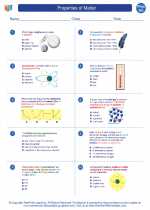Bases in Physics
In physics, bases are materials that can accept protons or donate pairs of electrons. Bases are an essential concept in understanding acid-base reactions and pH calculations. Bases play a significant role in various scientific and industrial processes.
Properties of Bases
Some common properties of bases include:
- Bitter taste
- Slippery or soapy feel
- Can conduct electricity when dissolved in water
- React with acids to form salts and water
Examples of Bases
Some common examples of bases include:
- Sodium hydroxide (NaOH)
- Potassium hydroxide (KOH)
- Ammonia (NH3)
- Magnesium hydroxide (Mg(OH)2)
Acid-Base Reactions
When an acid and a base react, they undergo a neutralization reaction, producing water and a salt. The general form of this reaction is:
pH and Bases
pH is a measure of the concentration of hydrogen ions in a solution. Bases typically have a pH greater than 7. The higher the pH, the more basic the solution. The pH scale ranges from 0 to 14, with 7 being neutral, lower values being acidic, and higher values being basic.
Study Guide
When studying bases in physics, it is important to:
- Understand the properties of bases and be able to identify common examples
- Be familiar with acid-base reactions and how to write and balance chemical equations for these reactions
- Learn how to calculate pH and understand the relationship between pH and the concentration of hydrogen ions in a solution
- Practice identifying and classifying substances as acids or bases based on their properties and behavior in reactions
It is also beneficial to work on problem-solving exercises and practical applications of bases in various scientific and industrial contexts.
.◂Physics Worksheets and Study Guides High School. Properties of Matter

 Worksheet/Answer key
Worksheet/Answer key
 Worksheet/Answer key
Worksheet/Answer key
 Worksheet/Answer key
Worksheet/Answer key
